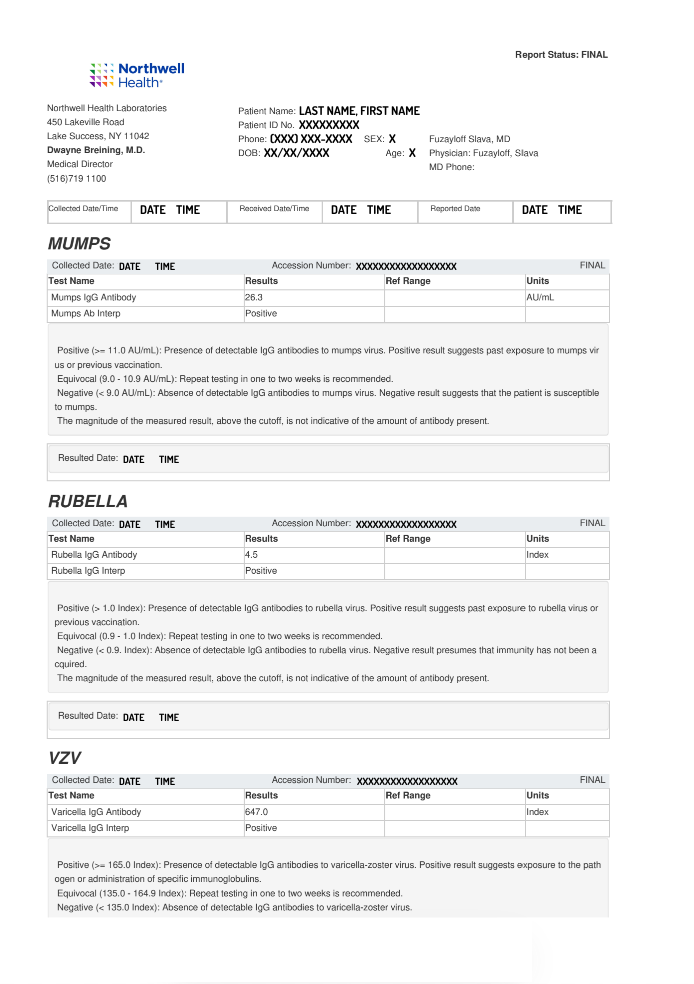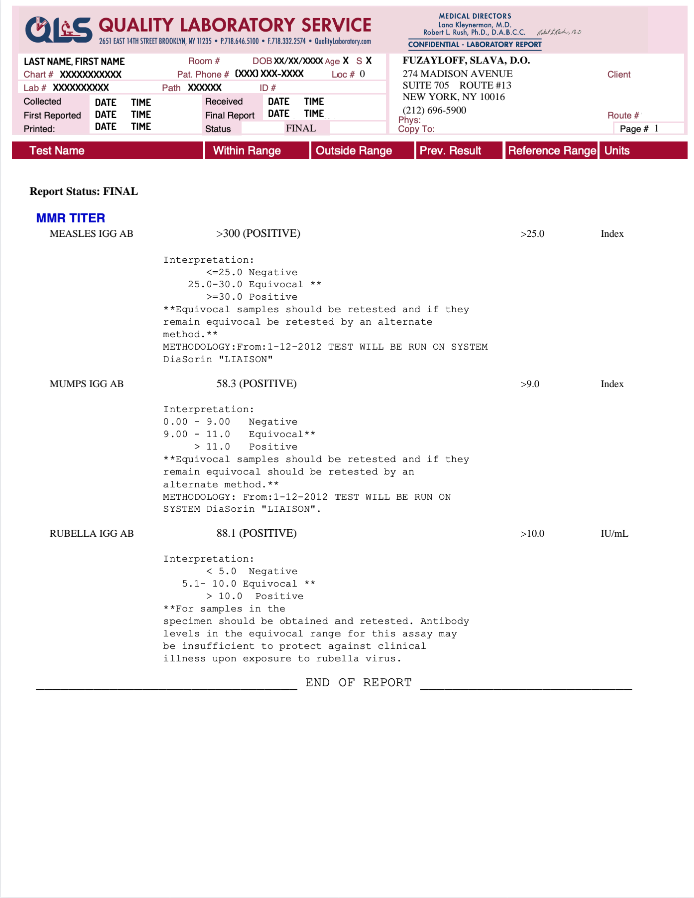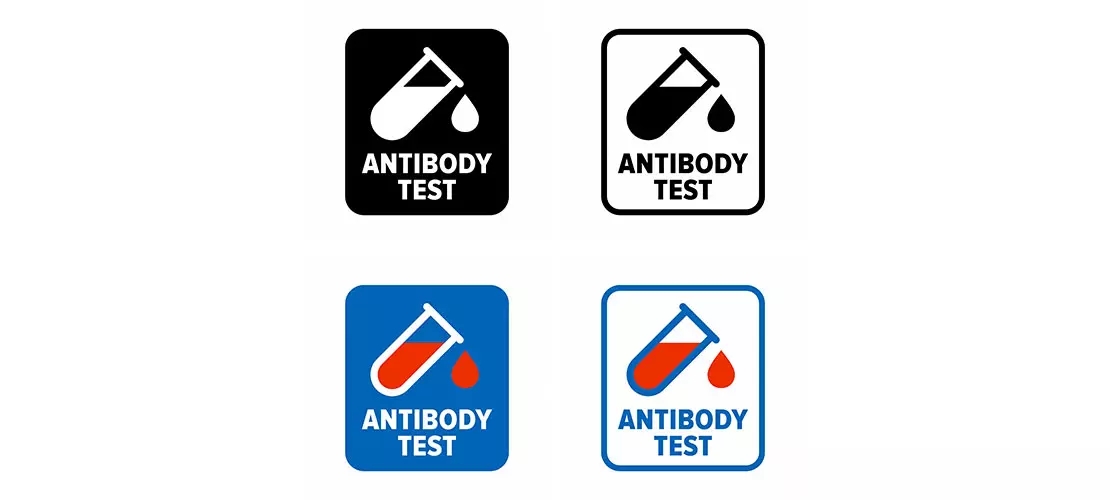
Antibody titer test for vaccine status
(Also known as: serum titer test, immunization test, serologic antibody test)
The purpose of this article is to talk about antibody tests (also known as titer, serologic, and immunologic tests) that can check for immunity.
We'll give you only practical information that you need to know about titer testing, such as the following:
✓ What titter tests can be done
✓ Common (or customary) titer tests that can be done before traveling
✓ Common (or customary) titer tests that can be done for employment purposes
✓ How to interpret the test results
✓ Where titer tests can be done
✓ And more…
This article was written by board-certified travel vaccination specialist Dr. Slava Fuzayloff, who practices at one of the biggest and busiest travel clinics in Midtown Manhattan. See our website at TravelClinicNY.com.
What is immunity?
Immunity to a disease is achieved through the presence of antibodies to that disease in a person’s system. They are produced by the immune system to neutralize or destroy toxins or disease-carrying bacteria or viruses.
There are two types of immunity: active and passive.
Active immunity is developed as a result of vaccination or previous infection. The body’s immune system produces antibodies, which generally last for years or even a lifetime.
Passive immunity is a transferred immunity, such as from mother to infant or by a blood product such as immunoglobulin. This type of immunity is usually very short lived and offers only temporary protection.
How is immunity confirmed or checked?
Immunity can be confirmed in two ways:
✓ Checking a childhood vaccine record
✓ Getting an antibody titer test
We'll talk in greater detail about each vaccine verification method so we can understand when each one is used.
Childhood immunization records
Most people (over 90–100% depending on the vaccine) develop immunity after completing the vaccine series. So, it is customary to believe that a person is immune to a childhood disease if there is a history of vaccination (record) against that disease.
For that reason, most schools and workplaces accept childhood vaccination records as proof of immunity.
Antibody titer test
FYI: Not everyone that gets all necessary shots develops immunity.
What is the titer test?
The titer test, as we said, is one of the ways of proving immunity. It is done by checking for the presence (qualitative) or amount (quantitative) of an antibody in the blood. An antibody is a special protein produced by the immune system to protect the person from infection by bacteria and viruses.
Who an antibody titer test?
So, who should get antibody serologic titer tests?
These are the main reasons for these tests:
✓ You start work
• If your childhood vaccination record is lost and it isn't possible to contact your pediatrician
✓ You're hired by a high-risk workplace
• o Your employer asks for proof of actual immunity-a childhood vaccination record is not sufficient
✓ You're about to travel abroad
• If you want to be sure about your immunization status before the trip
✓ You're pregnant
• Certain kinds of immunity should be checked to avoid diseases and complications during pregnancy
• You're a healthcare worker who’s had the needle prick
• To check whether your existing immunity is enough for protection
✓ There's an outbreak
• To check for active immunities
Let's talk in greater detail about the two most common reasons for titer testing: traveling abroad and starting work.
Getting an antibody test before traveling abroad
When people travel abroad (especially to third-world countries), they want to enjoy their time there and minimize the chance of getting sick. So, they sometimes choose to get an antibody test to check their immunity. Here are the two most common reasons for doing this:
No vaccination card is available
People can lose (misplace) a childhood immunization card, and there is no one place (on a federal or state level) to check immunization status. The only way to confirm immunity is with an antibody titer test.
There is a vaccination card, but the person wants to be extra sure about their immunity
Some people have their immunization card and have all necessary vaccinations it covers, but they want to be extra careful and sure they’re still immune.
The level of immunity can decrease over time, and the only way to find out if it has is through serologic testing.
Getting an antibody test before starting work
Some people study or work in an environment (such as in a medical field) that poses a higher risk of infection by bacteria and viruses.
Most of the organization in high-risk areas might require the titer test, and the childhood immunization record might not be enough as proof of immunity.
The antibody titer test will help to show whether the person has adequate protection for that high-risk environment.
What types of antibody titer tests exist?
Two titer tests exist: qualitative and quantitative. Here is a short overview.
Qualitative antibody testing is checking for the presence of an antibody. It will report your results as positive (immune) or negative (not immune).
Quantitative antibody testing is checking for the degree of immunity. The report will have a numeric result that represents the amount of antibodies the blood.
Most of the time the quantitative test is performed, as qualitative testing falling out of favor. This is especially true of employer immunity testing.
How soon can the antibody titer test be done?
In general, the titer antibody test can be done 6-8 weeks after completion of the initial vaccine series or receipt of a booster.
How are antibody titer tests performed?
Antibody titer tests use a sample of blood.
No special preparation, including fasting, is necessary.
The sample is sent to a lab, and the results come back in 24–72 hours.
How are antibody titer tests performed?
The most common titer tests for traveling are the following:
✓ Hepatitis A IgG test
✓ Hepatitis B IgG test
✓ Quantitative antibody test for measles, mumps, and rubella (MMR)
✓ Quantitative antibody test for varicella
✓ Rabies antibody test
What antibody titer tests can be done for work-related purposes?
Here's a list of the most common tests requested for high-risk workplaces, such as hospitals and nursing homes, as well when you don't have a childhood immunization record to prove your immunity:
✓ Quantitative antibody tests for measles, mumps, and rubella (MMR)
✓ Quantitative antibody test for varicella
✓ Hepatitis B surface Ab test
✓ QuantiFERON test for tuberculosis
✓ Polio Ab
✓ Tetanus Ab
For people handling animals or working in veterinary clinics (veterinarians and vet tech), this additional testing might be necessary:
✓ Rabies Ab test
For people working in the food industry, this additional testing might be necessary:
✓ Hepatitis A IgG testing
How is the titer test read?
On your vaccine titer lab test report, you will see your result as a number next to the test performed. The lab will also provide the accepted reference range, which can be used to interpret your titer levels as positive, negative, or equivocal.
In general, "positive" means you're immune, while "negative" or "equivocal" typically means you need to be revaccinated.
Please refer to the sample reports that we’ve provided with the specific tests for more detail on what your results will look like.
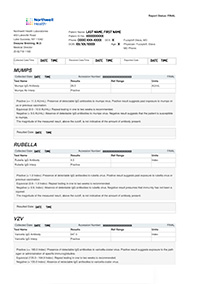
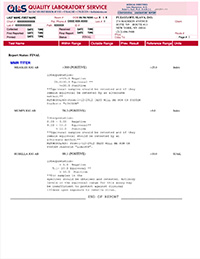
What does it mean to have a low or negative antibody titer test?
A low or negative titer means that you have little or no immunity to the specific disease tested. So, the next question is what to do.
If the titer test shows no immunity
You need to be entirely revaccinated-that is, get all necessary shots (depending on the vaccine type, 2 or 3 shots over a period of a time).
If the titer test shows low immunity
You need to be revaccinated with one booster shot. There is no need to get the entire vaccine series.
Please be aware that the earliest time you can be tested is 6–8 weeks after completing the entire initial vaccination series (for no immunity) or getting a booster (for low immunity).
What if I don't develop immunity?
It's rare, but not all vaccinated people develop immunity.
If you still test low or negative for immunity after getting a booster (for low immunity) or the entire vaccine series (for no immunity), you can discuss the situation with your healthcare provider.
Your healthcare provider can give you the documentation indicating your non-immunity to the disease, or you need to complete the non-responder form.
Someone is classified as a non-responder if two rounds of the entire vaccine series are given without adequate immune response.
About 2–10 % of people don’t respond to vaccination.
Is there any difference between titer tests from different labs?
For the most part, there’s no difference between titer tests from different labs.
Every lab has its own reference range against which you compare your vaccine titer test result to determine your immunity.
So, when you submit your titer test result to your school or employer, your results will be compared against the reference range on the lab report.
If you’re tracking your antibody levels for personal reasons, the same lab should be used because vaccine titer testing methodology can be slightly different.
How long does vaccine immunity last?
Here we will provide an overview of specific vaccines, including their effectiveness and how long protection lasts. This should help you get an idea of your immunity status based on your childhood immunization records alone.
Measles, mumps, and rubella (MMR)
Vaccine schedule
For kids: first dose between 12 and 15 months, second dose between ages 4 and 6.
For adults: two doses at least 28 days apart.
Effectiveness
Ninety-seven percent of people develop immunity against measles and rubella; 88% develop immunity against mumps.
Duration
According to the U.S. vaccination schedule, MMR vaccination provides lifelong immunity for measles and rubella. Immunity against mumps may decrease over time.
Vaccine schedule
For kids: first dose between 12 and 15 months, second dose between ages 4 and 6 years of age.
For adults: two doses 4–8 weeks apart.
Effectiveness
With one dose, 82% of people develop immunity. Two varicella shots are 92% effective.
Duration
Varicella is a live vaccine, and immunity should last for a long time. It is not known how long, but it is believed to be at least 10-20 years.
Vaccine schedule
Three doses for: first shot at day 0, second shot in 30 days, third shot 6 months from the first shot.
Effectiveness
Nearly all people (98%–100%) develop immunity.
Duration
Immunity will last for about 30 years. A quantitative blood test for the hepatitis B antibody can be done then to check the level of immunity.
Vaccine schedule
Two doses, with the second shot given between 6 and 12 months after the first.
Effectiveness
With one dose, 94% of people develop immunity. With two doses, 98% of people develop immunity.
Duration
With one dose, immunity can last from 0.1 to 7.5 years. With two doses, immunity can last up to 20 years.
Vaccine schedule
For kids: four shots, at 2 months, 4 months, 6–18 months, and 4–6 years of age.
For adult: first dose anytime, second dose 1–2 months later, third dose 6–12 months later.
Effectiveness
Two polio doses provide 90% protection, and three doses provide 99% protection.
Duration
Polio immunity lasts for a lifetime.
Someone traveling to a country where polio is endemic can get one lifetime booster of polio (inactive polio vaccine, or IPV).
Tetanus, diphtheria, and pertussis (TDaP)
Vaccine schedule
For kids: Five doses, given at 2 months, 4 months, 6 months, 15–18 months, and 4–6 years of age.
For adults: one dose.
Effectiveness
The TDaP vaccine provides 100% immunity against tetanus, 97% immunity against diphtheria, and 80%–85% immunity against pertussis (whooping cough).
Duration
Immunity lasts about 10 years.
Vaccine schedule
Two doses of rabies vaccine are given on days 0 and 7. It is called PreP (preexposure prophylaxis). Not everybody should get it.
Please refer to this CDC page. for more detailed advice on rabies PreP:
Effectiveness
If preexposure (PreP) rabies vaccine was obtained and the person had exposure to rabies, only two doses of the vaccine should be given: one immediately after and one three days later.
A commonly asked question is why anyone should get the preexposure rabies vaccine. The answer is that after a PreP rabies vaccine, the person has 72 hours to get the first shot, and only two shots will be given. But without a PreP rabies vaccine, the person should get the first shot on the day of the bite-it is a time-sensitive matter-and after the first shot, three more shots should be given.
Duration
Depending on the level of risk, a blood test or booster 3 years after the first two doses is advised.

